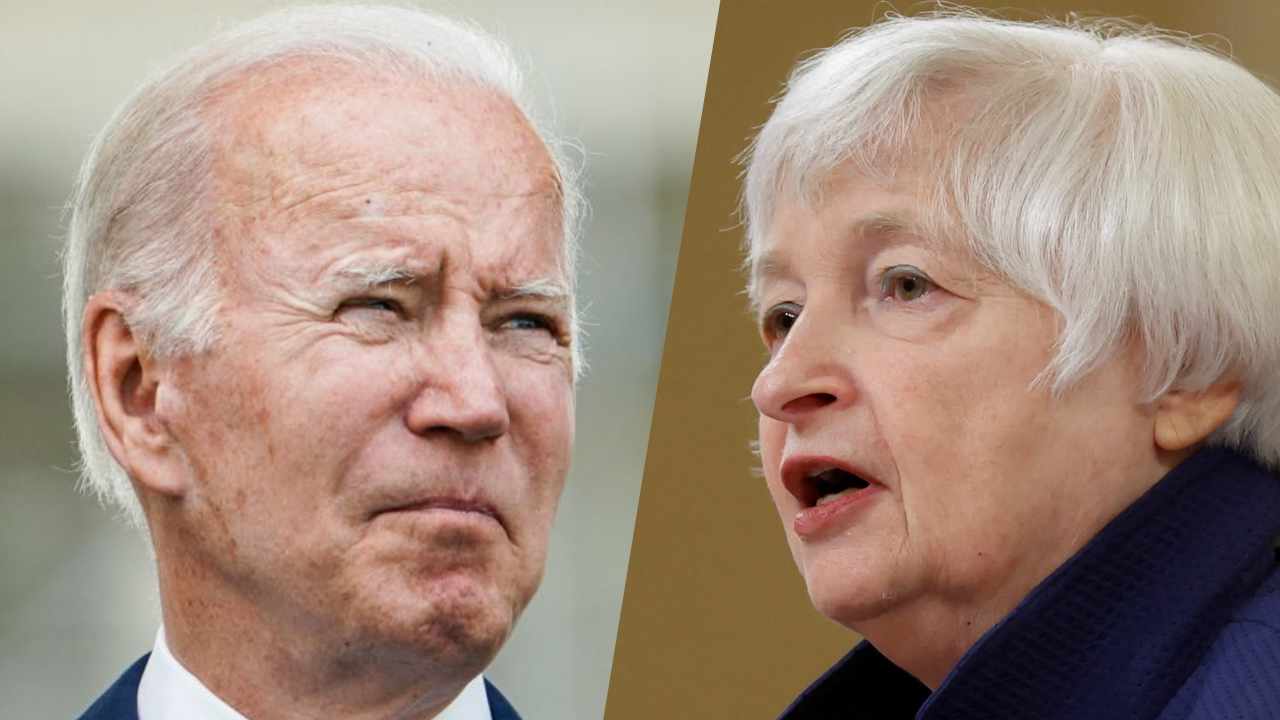
Roving Periscope: Million of Americans may lose jobs if…warns President Biden
Virendra Pandit
New Delhi: US President Joe Biden has warned that the American economy could slip into a recession and throw millions out of jobs unless the Opposition Republicans agree to raise the country’s USD 31.4 trillion debt ceiling before June.
If the debt ceiling is not raised and the US defaults, it may cause a global economic catastrophe. The entire international financial system will be jolted since more than USD 500 billion in US debt gets traded every day worldwide.
According to Moody’s Analytics, if the stand-off between the legislature and the executive continues, stock prices will fall by almost a fifth and the US economy will contract more than 4 percent, causing a loss of over 7 million jobs.
Last week, White House economists estimated that a protracted default could cost up to 8 million jobs and wipe half the value off the US stock market.
In a Wednesday poll campaign-style speech in a swing district in New York state, President Biden accused Republicans of holding the economy hostage by demanding “devastating” spending cuts in exchange for raising the debt limit, the media reported.
“We’re bringing jobs back all across America,” he said at an event in Valhalla, New York, that Republicans narrowly won in mid-term elections in November 2022.
“This is no time to put all this at risk, to threaten a recession, to put at risk millions of jobs, to undermine America’s standing in the world.”
The Biden Administration and Congressional Republicans have struggled to find common ground on raising or suspending the debt ceiling to prevent the US from defaulting on its debt by June 2023.
The US Treasury Department also indicated it may be unable to pay its bills as soon as June 1.
Republicans insisted they will only support raising the debt limit if Biden agreed to retroactive spending cuts, while the President wants to negotiate the budget separately.
In April, House of Representatives Republicans passed a plan seeking USD 4.5 trillion in deficit savings by cutting spending, scrapping tax breaks for clean energy, and reversing the President’s plan to forgive student debt.
A crucial meeting between President Biden and the House and Senate leaders of both parties on Tuesday to discuss budget priorities and raise the debt ceiling limit ended with no agreement. They will meet again on Friday to discuss how to avert an impending default crisis.
Now, lawmakers have only about 20 days to increase or suspend the debt ceiling.
Mitch McConnell, the top Republican in the Senate, earlier this week assured that Congress would not let a default happen. “The United States of America is not going to default.”
If the US defaults, the Federal government will be unable to pay salaries of federal employees, the military, social security, and Medicare, and shock global markets.
The debt ceiling is a legislative limit on the amount of money that the US Federal government can borrow. It was created under the Second Liberty Bond Act of 1917 and is also known as the debt limit or statutory debt limit.
As a legislative practice, the US Congress votes to raise or suspend the ceiling so that the amount can be altered.
US Treasury Secretary Janet Yellen has warned of dire consequences. “It’s Congress’s job to do this. If they fail to do it, we will have an economic and financial catastrophe that will be of our own making,” she said on Sunday.
Yellen also discussed the situation with corporate honchos, apprising them of the dangers of brinkmanship, the media reported.
Though such stand-offs are not new, this protracted fight threatens to unleash turmoil on a global scale.
The reason for the current stand-off is that the Lower Chamber of the US Congress, the House of Representatives, is controlled by Republicans, while the 100-member Upper House, or US Senate, is run by the ruling Democrats.
The split has significantly affected both parties’ ability to pass key legislations through Congress, particularly Democrats, who also hold the US Presidency.













